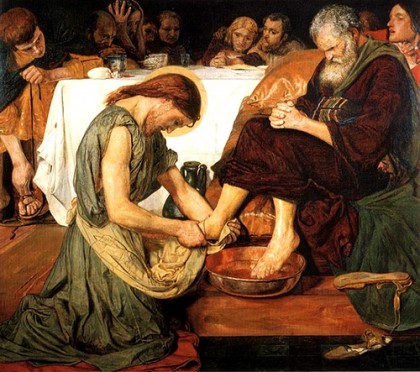 Tradition is the conveyance of the real; literally, the “handing on” of truth. At the heart of Holy Thursday, the young Church is entrusted with precisely this. A man who has identified Himself as the Truth itself has commissioned the twelve apostles to hand him on - through teaching, by imitating his service to them, and most especially through their priesthood and the representation of the eucharistic sacrifice: thus is born Sacred Tradition and the New Covenant. But whereas tradition in its proper sense, is a handing on of the truth for the good of the recipient, the root of the word (tradere) carries a more treacherous double meaning that also connotes a handing on at the expense of what is being exchanged: "tradere" can mean to hand on - or to hand over.
Tradition is the conveyance of the real; literally, the “handing on” of truth. At the heart of Holy Thursday, the young Church is entrusted with precisely this. A man who has identified Himself as the Truth itself has commissioned the twelve apostles to hand him on - through teaching, by imitating his service to them, and most especially through their priesthood and the representation of the eucharistic sacrifice: thus is born Sacred Tradition and the New Covenant. But whereas tradition in its proper sense, is a handing on of the truth for the good of the recipient, the root of the word (tradere) carries a more treacherous double meaning that also connotes a handing on at the expense of what is being exchanged: "tradere" can mean to hand on - or to hand over.
Our Lord, on multiple occasions, expresses that He must be handed over. Of course we all know that this lot fell to Judas Iscariot. Judas is a man history has caricatured as the great villain lurking in the shadows, twisting his ruddy mustache, and waiting to get his thirty pieces of silver. But the truth is far more insidious, for Judas was an apostle. He was a friend of Jesus, a prince of the Church, commissioned to preach the coming of a new kingdom and even entrusted with the money purse. According to the Gospel accounts, nobody saw his betrayal coming - almost nobody...
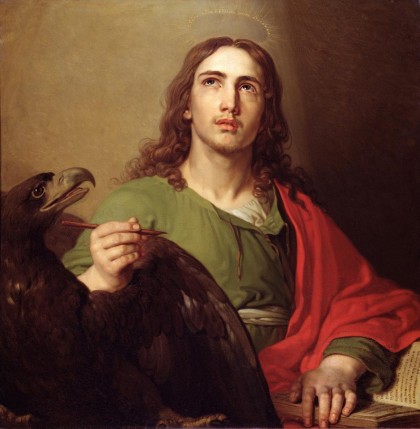
The beloved disciple had a keen perspective on the handing over of Christ and his first hand report, the final Gospel, sheds a good deal of light on the acts of Judas. Especially given the intrinsically prophetic nature of Sacred Scripture itself, we would do well today to re-visit St. John’s account in light of the current state of the Holy Church. First, let’s read an excerpt from John 12:
"Six days before the Passover, Jesus came to Bethany, where Laz′arus was, whom Jesus had raised from the dead. There they made him a supper; Martha served, and Laz′arus was one of those at table with him. Mary took a pound of costly ointment of pure nard and anointed the feet of Jesus and wiped his feet with her hair; and the house was filled with the fragrance of the ointment. But Judas Iscariot, one of his disciples (he who was to betray him), said, “Why was this ointment not sold for three hundred denarii and given to the poor?” This he said, not that he cared for the poor but because he was a thief, and as he had the money box he used to take what was put into it. Jesus said, “Let her alone, let her keep it for the day of my burial. The poor you always have with you, but you do not always have me.”
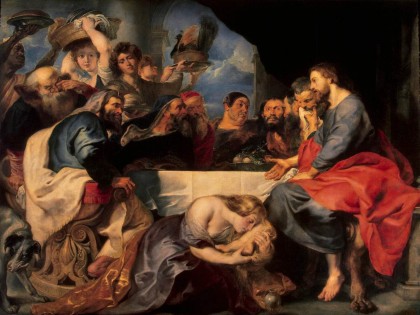
It should be noted here that many scholars are inclined to think that Judas, given his last name, shared the ideological roots of the Sicarii (dagger men), a group of Jewish ‘community organizers’ bent on liberating Judea from the oppressive Romans. It is likely that Judas was hoping for a messianic reign that was of this world - Jesus must have really let him down with all that crazy talk of being put to death. In John 12, we see here an apostle discouraging the penitential, lavish adoration of Christ in favor of his alleged preference for the poor. We do not have to stretch too far to see Judas as the primal “social justice catholic.” How often to we hear of those in our flock who, rather than seek to clothe and feed the poor because they are the thirsting Christ, are rallying against “social sin” and “poverty” in the abstract as Judas did? How often today do we see the external works of the Church stripped of their evangelical value and transcendence in favor of merely transitive activity? Soup kitchens are very helpful for those in need, but Christ’s Church is only about the business of soup kitchens insofar as they are modes of evangelism - insofar as they are oriented ultimately toward the conversion and salvation of souls (cf. Leo XIII, Rerum Novarum). Judas would have no such thing - he was concerned with ‘social action.‘
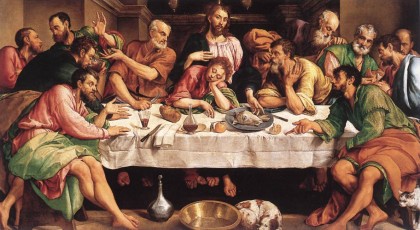
Fast forward to the Last Supper. Jesus drops the bombshell: “Truly, truly I say to you, one of you will betray me.”(Jn. 13:21) Nobody has a clue who Jesus is talking about. Naturally, the upper room bursts into a boisterous finger-pointing session. Who could it be? Everybody has a suspect; everybody seeks to vindicate himself. Hearts of men are revealed through the ruckus and accusation. Each of the disciples is uncertain and hoping that they can discover the culprit and protect their Lord as if they could save the day and prove Him wrong. But not John. As the eleven are erupted in argument, the Beloved Disciple does what he does best: he adores. He does not need to know who it will be, or if he has an idea, he is too humble to presume it, even internally. He hopes with all his heart that it is not him, even aware that he himself is capable of such a fall. With his head near the Heart of his Lord, he adores silently - contemplating the mystery just placed before him and consoling his afflicted Master.
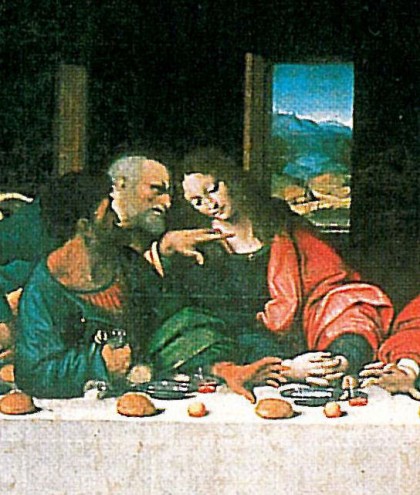
Then, suddenly, as he sometimes does, Peter gets a bright idea. Knowing the favor that John has with Jesus, knowing that John alone has access to certain mysteries in Christ’s heart, Peter gestures to him while the other ten continue to argue. “Tell us who he’s talking about,” Peter says. Respecting Peter’s command, John asks the Lord of whom He speaks. Jesus knows He can reveal the answer to John: “It is he to whom I shall give the morsel after I have dipped it,” the Lord says. Then He dips it and gives it to Judas.
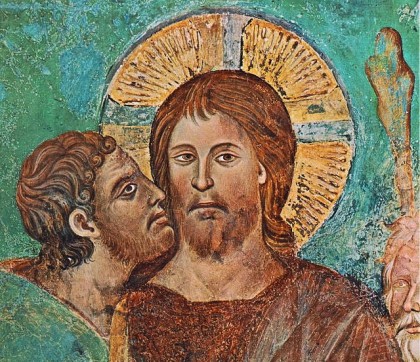
As we often gloss over this account all too aware of its ending, it is easy to forget two things of importance. Firstly, it is clear that no one at the table hears what Jesus tells John. Everyone else sees that Judas ate with Jesus and left early. Jesus tells Judas publicly to do what he must do quickly. And “no one at the table knew why he said this to him.”(13:28) There are 10 disciples at table who think Judas has departed to buy things for the feast or tend to the poor. Only John knows what Judas was leaving to betray the Lord - only John knows that Judas, son of Simon is not actually concerned with the poor. Secondly, John cannot answer Peter’s question. Luke’s account of the last supper (which he would have received from John himself) reminds us that there are two swords in the room (Lk. 22:38) - the men were armed. It is not unpleasant to consider the counterfactual Quentin Tarantino version of the story in which St. Peter finds out who will betray our Lord and gets his hands on a sword before Judas leaves for the night. John knows that he cannot reveal the secret less his Lord’s mission go unaccomplished and the Lord trusts John alone with this mystery. As much as John may want to inform Peter and save Jesus from betrayal, he cannot or else Peter would kill Judas where he stood.
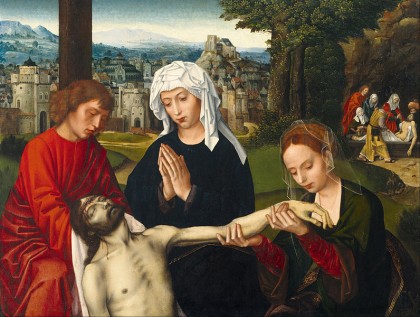
The Holy Thursday account is not confined to an upper room 2,000 years ago. The Son of Man must be handed over - the body of Christ is subject to betrayal. Sadly for us, in these days as it was then, that betrayal can be of the worst sort: apostolic betrayal. The spotless Lamb may be handed over to the secular powers by His own princes and only then can the new Kingdom be ushered in. The very good news for us, today though, is that this time, when the Kingdom is manifest, it will not be the veil in the temple that is torn, but the sky that will be rolled back for all to see; the night that conceals Judas’ deeds will be no more, and the One Who was betrayed will return in Glory. On that day, every knee will bow and every tongue will confess that HE IS. But for now, as we begin to realize what the betrayer has been doing in our midst, and as we perceive the imminence of the Cross, as we carry the Lord’s secret in our heart, we may ask: what is the due response of the disciple in the face of apostolic betrayal? Should we cry out against the injustice? Should we reach for the sword? Should we try to talk Judas out of it? Should we write our chancellories? No. The beloved disciple shows us the right response to apostolic betrayal: Silence and Adoration. Rest your heads on His Sacred Heart while the others quarrel; then you will find a strength to follow Him to the cross and the hope to run to the empty tomb. It is you, Beloved, to whom the Incarnate Word will give his Life and His mother. He is being handed over, yes. But through this, we are being handed to the Father.

